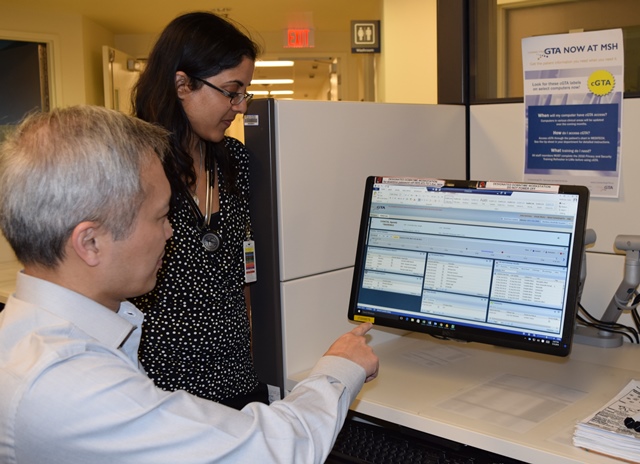When patients sit in front of a clinician, whether in a hospital Emergency Department (ED), an urgent care centre or a community practice, they may already have received care from dozens of other physicians, specialists and care providers. To fully understand the patient’s medical condition and to offer the best and most timely care, that physician ideally wants to know what all of those other clinicians know. He or she needs the patient’s medical information.
But patients rarely travel with their medical data, which means that the attending physician may have to spend time phoning around to other institutions, seeking the patient’s latest lab results or medical images, or even their medication history. Without this data, the physician may be forced to send the patient for duplicate and potentially unnecessary tests, or unknowingly begin treatment that may conflict with the patient’s current care.
More than just an inconvenience and burden to everyone involved, the lack of a patient’s medical data may significantly compromise his or her care.
Recognizing this concern, Markham Stouffville Hospital (MSH) recently implemented an electronic health information sharing platform known as Connecting GTA (cGTA). Part of eHealth Ontario’s larger Connecting Ontario initiative, cGTA integrates electronic health records through a centralized database.
“By seamlessly and securely linking through our hospital information system, our clinicians have ready access to a provincial patient data repository,” explains MSH CIO Lewis Hooper. “Such access allows our clinicians to view information critical to our patients and their care.”
The system also limits the burden on patients who may already be overwhelmed by their current medical concern, particularly in an emergency situation where the patient may not have had time to bring their records from home. Or in situations where patients may be experiencing cognitive impairments or language barriers that further complicate already challenging conversations.
MSH is part of the first expansion wave of cGTA participants, the early-adopter phase linking 40 healthcare service organizations including 11 hospitals, which are already sharing patient data and populating the repository.
MSH was the first hospital to link to cGTA with a new version of a prominent hospital information system, which presented the organization a unique obstacle to overcome. This meant that MSH needed to work with the systems’ designers to create an entirely new way to link the two resources while maintaining important features such as single-sign-on.
The one-click, or single-sign-on, system design allows clinicians to access the cGTA repository without having to open a second portal, further streamlining access to vital patient information. As well, the restriction to a single log-in improves the system’s security, helping to ensure that personal medical information is only seen by those authorized to view it.
“We’re already seeing the benefits of the new system,” says General Internal Medicine Lead Dr. Allan Yee. “The rapid access to a patient’s previous care from connected organizations, and lab results from across the province gives us the information we need to support medical decision-making. This is health data sharing at a level that provides us access when and where we need it the most.”
For example, ED physician Dr. Sonia Sabir lauds the ability to see clinical lab results from facilities throughout Ontario, thinking of one case where her next treatment decision hinged on knowing how well the patient’s kidneys were functioning. “The cGTA viewer allowed me to easily compare lab results from different hospitals to see that there was no worsening of the patient’s renal function over time,” she said.
The MSH implementation has also shown benefits from quite unexpected directions.
Kris Bayley, an ED nurse, recounted an incident involving a patient who was new to MSH and was presenting with suspicious behaviour. Checking cGTA for the patient’s medical history, she found more than 20 visits to various facilities in the region, all within the last few months.
Just by looking at the patient’s ADT (admission-discharge-transfer) information, the nurse realized that the numerous visits suggested drug-seeking behaviour by the patient, and she was able to act accordingly.
As MSH was the first hospital to link cGTA to the new version of the hospital information system, the design solution will be shared with other institutions using the same vendor as cGTA rolls out across the province and with early adopter organizations as they upgrade to the same version.
As for MSH itself, the organization has begun the next phase of populating the cGTA repository with patient data. This completes the information loop and further strengthens cGTA and enhances the quality of patient care for all participating organizations.
“We want to be sure we contribute information quickly,” offers Hooper. “It’s great that we can view the data from cGTA, but it is just as important that we add whatever data we have to ensure optimal care to all patients in Ontario.”




